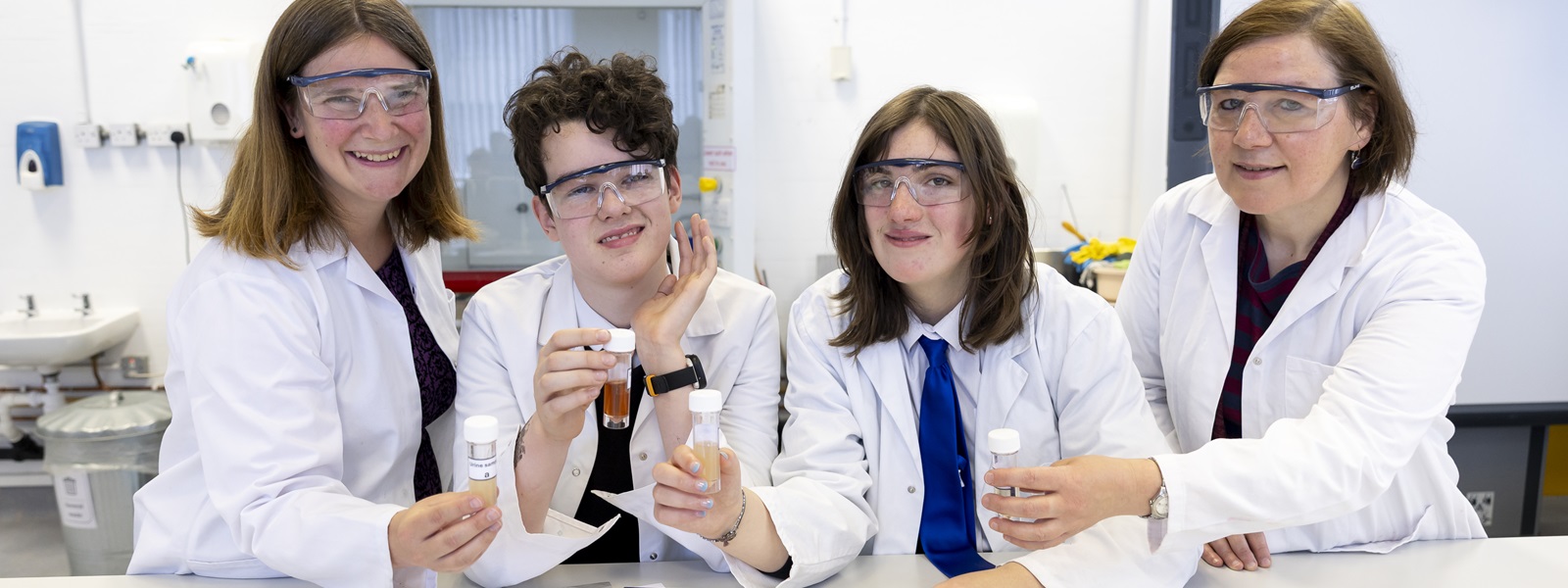
School pupils with additional support needs presented the findings of research they had undertaken into health and digital technologies at a conference at the University of Strathclyde.
The pupils were recruited as researchers to investigate how people with intellectual disabilities might use technology to monitor their health and wellbeing – and overcome health inequalities they face.
The Healthy Futures For All, Health Education For Diverse Communities conference, on 12 June in Strathclyde’s Technology and Innovation Centre, explored how health education could be made more meaningful and credible for diverse communities and how barriers to helping them make informed health decisions might be overcome.
The pupils from Abercorn Secondary School in Glasgow and Queen Margaret Academy in Ayr attended workshops at the University over the spring and ran these at the event alongside staff from the University’s StrathLab, as well as presenting posters and other resources that they had prepared showing their research results.
Abercorn pupil Isla Gibson said: "I really enjoyed working in the lab on fun activities and finding out about how heart rate and how it can change with exercise."
Classmate Martin Carr added: "'I liked the session on colour blindness. It made me think about how I see the world compared to others."
Informed choices
They also participated in experiments in the laboratory, testing samples and measuring their heartrates before and after exercise, and were joined by Glasgow City Councillors Martha Wardrop and Seonad Hoy.
Dr Jane Essex, the conference organiser, said: “People with intellectual disabilities often face significant barriers to health care – from poor communication and inaccessible information to misdiagnosis and a lack of support to make informed choices.
These inequalities demand better training for health professionals and more inclusive, person-centred care.
The project was supported by StrathLab – Strathclyde's living lab for co-creating better lives. The Living Lab facilitates engagement and involvement with the public in research and innovation putting people first and enabling our research to have social good for all of society.